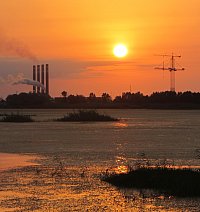IG der Wasserregulierung

Picture: Arezoo Mirzaei
In Iran, groundwater supplies about 60% of the country's total water needs, with more than 90% of groundwater withdrawals used for agriculture. However, extensive water extraction has led to significant socio-environmental problems, including declining water quality, desertification, and increased tensions between groundwater users. The number of unauthorized wells has also contributed significantly to groundwater depletion and water scarcity. Despite policies aimed at regulating water use, such as the Equitable Distribution of Water Resources (EDWR) and the Determination of the Status of Unlicensed Wells (Ta'een Taklif Law), the country continues to face challenges in managing its groundwater resources sustainably.
The current project aims to analyze the institutional challenges within Iran's key groundwater laws using the analytical lens of Institutional Grammar (IG), embedded in a broader project on the “Application of Institutional Grammar to Water Regulation Worldwide”. The use of IG helps to identify inconsistencies in these laws that contribute to accelerating groundwater depletion. By examining the content of the EDWR and Ta'een Taklif laws, the project provides insights into the difficulties facing Iran's water sector and offers recommendations for policy reform to achieve sustainable groundwater management.




